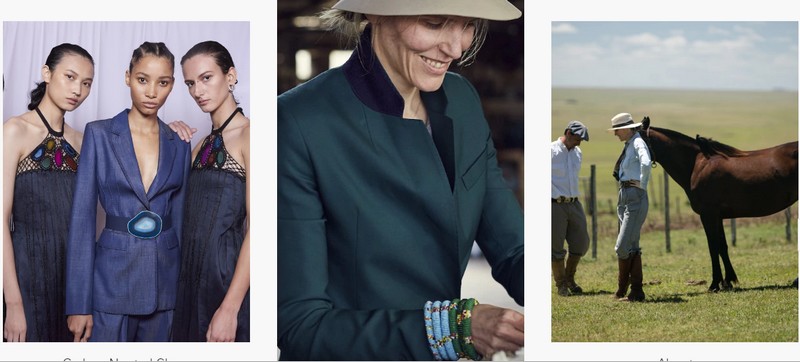Kelsey Juliana, a youth climate activist from Oregon, is joining forces with Gabriela Hearst, a fashion designer whose clothes are worn by Lady Gaga and the Duchess of Sussex, to ignite a trend they hope will become a global sensation.
Juliana, 23, is the lead plaintiff in a group lawsuit suing the US government for breaching the human rights of her generation by failing to take action to protect the environment. The case, Juliana v United States – which goes by the unofficial name of Youth v Gov – aims to have the US supreme court order the government to dramatically change energy policy. Hearst – who, with her husband, John Augustine Hearst, the scion of the magazine empire, has a net worth estimated at £1.5bn – is providing financial backing for the case.
As they prepare to speak in front of an audience of designers, supermodels, editors and luxury industry CEOs at the Business of Fashion Voices conference, Juliana and Hearst hope that their constitutional action to protect the rights of young people to a clean environment can snowball into the next decade’s most era-defining trend.

“Fashion sets the tone for society. Right now, we need to imagine a new way of living and fashion can help us do that,” says Juliana. “And fashion has young people driving it, just like climate action does.” Juliana, who filed her case aged 15, has taken part in many protest events, including marching 1,600 miles from Nebraska to Washington DC in 2016, but believes that lawsuits give those too young to vote a way to stand up for their right to a habitable planet.
“All movements – the women’s movement, the gay rights movement – have cemented themselves in law and in the culture with a constitutional change,” says Hearst of their choice of a legislative rather than protest-based challenge. “It’s important to solidify this by going through the traditional route.” There are currently 1,390 lawsuits against governments and fossil fuel corporations in more than 25 countries, according to the Sabin Center for Climate Change Law. Last month, a group of 15 young Canadians filed La Rose v Her Majesty the Queen, alleging that the Canadian government’s energy policies have violated their rights to a stable climate. Juliana notes that “there are more cases coming up all over the world”.
Many climate activists would decline an invitation to speak at a fashion event, given that it represents one of the world’s most polluting industries and sits uncomfortably at the crossroads of still-growing consumerism and increasing awareness of the need for change, but Juliana is “excited to be here. All facets of our society currently operate in a way that is problematic – the way we eat, the way we travel, what we buy. I am totally guilty of buying fast fashion, because I don’t have the resources to buy luxury fashion. But I was in Amsterdam recently and it was inspiring to see how much secondhand clothes and taking care of clothes are part of the culture there. What if we saw fashion come to represent a new way of living?”

Fashion has always symbolised intergenerational strife and is, in that sense, a fitting stage for a crisis in which the Greta Thunberg generation are voicing increasing anger towards older people. “I want to be on stage to showcase how young people are stepping up to the bat, and ask the professionals and heads of industries in the audience to stand with us,” says Juliana. “My future is at risk in a way that isn’t the case for old people. I won’t sugarcoat it – I feel disappointment, disgust and rage. But my primary emotion is love – a deep, deep love for life and for the planet.”
Hearst staged New York fashion week’s first carbon-neutral catwalk show in September, working with the consultancy EcoAct to calibrate and offset each element of the carbon footprint. However, shesays: “Sometimes, I think I should just stop producing products. Definitely, people should buy less.” Britain, she says, is better placed to lead a change of lifestyle than the US, “because here you experienced world war two and so you understand frugality and resilience, which is the mentality we are going to need to access. In America, those challenges haven’t been seen since the civil war.”
Other speakers at the Voices conference, which begins on Thursday, include the Observer journalist Carole Cadwalladr, Clare Farrell of Extinction Rebellion and the photographer Juergen Teller.
guardian.co.uk © Guardian News & Media Limited 2010
Published via the Guardian News Feed plugin for WordPress.


